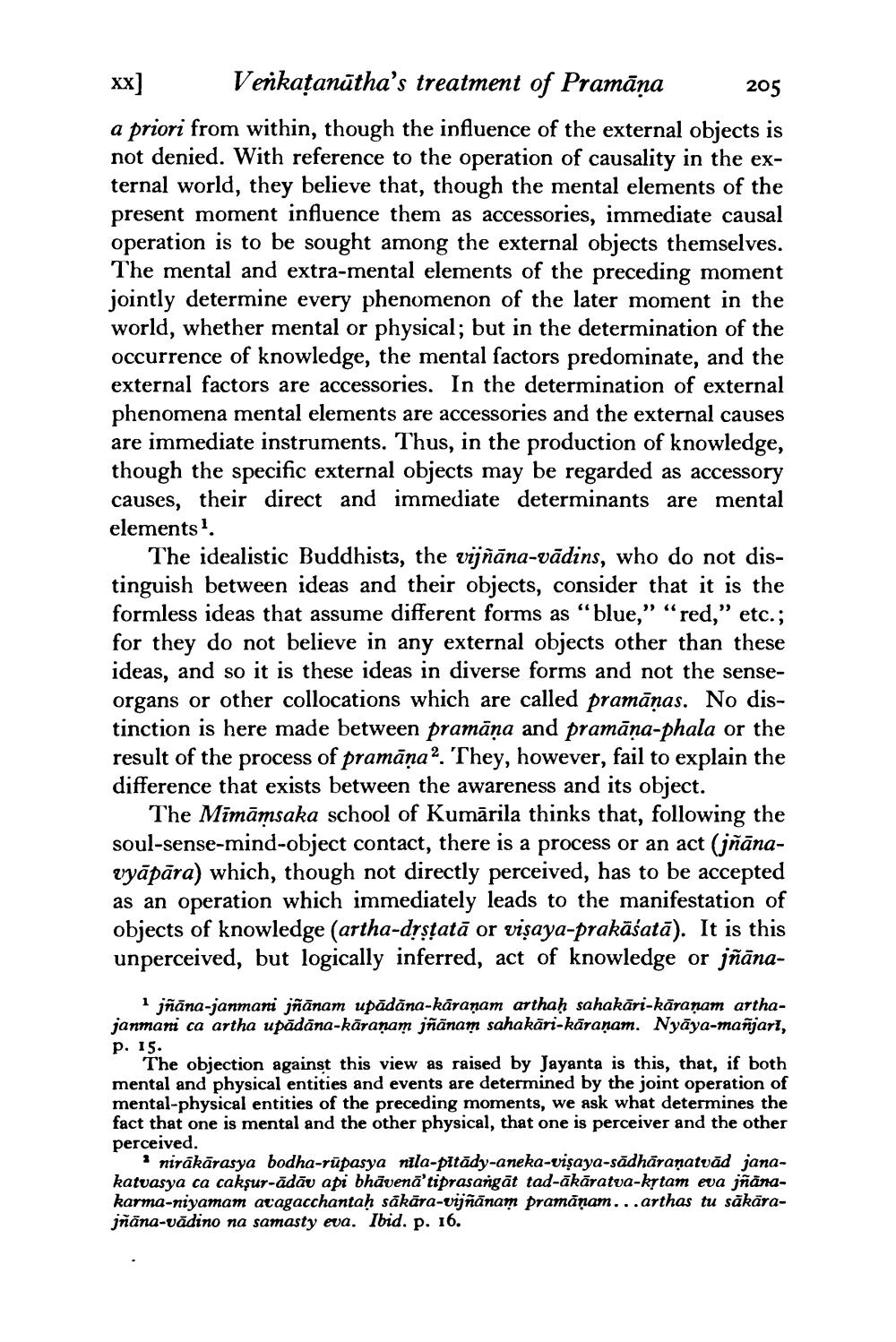________________
xx] Venkațanātha's treatment of Pramāņa 205 a priori from within, though the influence of the external objects is not denied. With reference to the operation of causality in the external world, they believe that, though the mental elements of the present moment influence them as accessories, immediate causal operation is to be sought among the external objects themselves. The mental and extra-mental elements of the preceding moment jointly determine every phenomenon of the later moment in the world, whether mental or physical; but in the determination of the occurrence of knowledge, the mental factors predominate, and the external factors are accessories. In the determination of external phenomena mental elements are accessories and the external causes are immediate instruments. Thus, in the production of knowledge, though the specific external objects may be regarded as accessory causes, their direct and immediate determinants are mental elements 1.
The idealistic Buddhists, the vijñāna-vādins, who do not distinguish between ideas and their objects, consider that it is the formless ideas that assume different forms as "blue," "red,” etc.; for they do not believe in any external objects other than these ideas, and so it is these ideas in diverse forms and not the senseorgans or other collocations which are called pramāṇas. No distinction is here made between pramāṇa and pramāņa-phala or the result of the process of pramāna2. They, however, fail to explain the difference that exists between the awareness and its object.
The Mimāmsaka school of Kumārila thinks that, following the soul-sense-mind-object contact, there is a process or an act (jñānavyāpāra) which, though not directly perceived, has to be accepted as an operation which immediately leads to the manifestation of objects of knowledge (artha-dssțatā or vişaya-prakāśatā). It is this unperceived, but logically inferred, act of knowledge or jñāna
* jñāna-janmani jñānam upādāna-kāraṇam arthaḥ sahakāri-kāraṇam arthajanmani ca artha upādāna-kāraṇam jñānam sahakāri-kāraṇam. Nyāya-mañjari, p. 15.
The objection against this view as raised by Jayanta is this, that, if both mental and physical entities and events are determined by the joint operation of mental-physical entities of the preceding moments, we ask what determines the fact that one is mental and the other physical, that one is perceiver and the other perceived.
* nirākārasya bodha-rūpasya nila-pitādy-aneka-visaya-sādhāraṇatvād janakatvasya ca cakşur-ādāu api bhāvenā'tiprasangāt tad-ākāratva-kytam eva jñānakarma-niyamam acagacchantaḥ sākāra-vijñānam pramāņam...arthas tu sākārajñāna-vādino na samasty eva. Ibid. p. 16.




